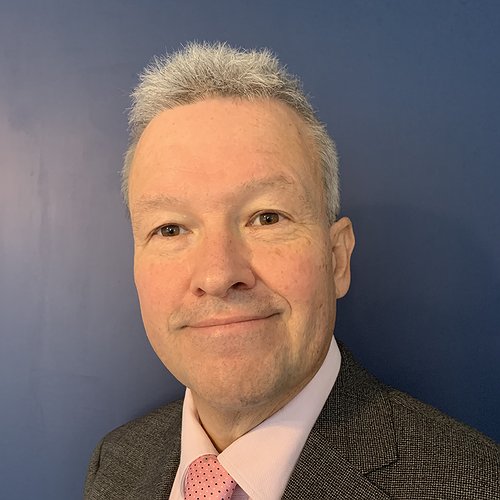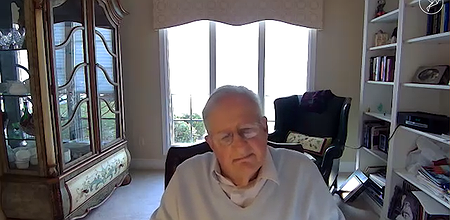- Understand the CFT approach to making sense of our tricky minds
- Understand the role of shame and self-criticism in the development and maintenance of psychological distress
- Understand the role that compassion can play in helping us to engage with and alleviate distress
- Deliver CFT
Compassion Focused Therapy : a complete guide for clinicians
Dr. Kenneth Goss, Consultant Clinical Psychologist
Advanced techniques to help with self-criticism and shame
Excerpt:
- 4h of continuing education
- 30 lessons that last from 5 to 15 minutes each
- 1 certificate of achievement
- 1 PowerPoint
- 1 bibliography
- 1 course evaluation
- 7-day money back guarantee
- Unlimited access
- 97% of participants who completed the satisfaction survey declare they would recommend this course to a colleague
Overview
Shame, guilt and self-criticism are known to play major roles in the development and maintenance of psychological distress. As mental health professionals, we often struggle with our clients when they have difficulty addressing their feelings.
Unfortunately, our brains - both old and new, including the social brain - have their own motives, emotions and competencies, making emotional regulation even more challenging for our clients.
To address these issues, Dr. Goss offers to enlighten us on these topics by explaining how evolution has shaped our minds and emotions, and why they are so tricky to manage. In this detailed workshop, he will introduce the Compassion-Focused Therapy (CFT) and its potential to support clients with a high degree of self-criticism and shame.
More specifically, Dr. Goss will share the CFT formulation model: its philosophy, principles, and practical techniques. He will also detail the different systems and processes involved in the regulation of emotions and how they impact psychological well-being. By the end of the workshop, you will have all the keys to understand the specific approach of CFT and see how its model can be adapted to a range of disorders such as depression, anxiety, Eating Disorders/Distress, Personality Disorders, Post-Traumatic Stress Disorder (PTSD), and Obsessive-Compulsive Disorders (OCD).
This training will cover:
- The role of evolution in the shape of our minds and emotions
- Why we have complex brains and why they are difficult to understand and regulate
- The interactions between the old and new brain
- What is compassion focused therapy?
- The competencies of compassion: engagement and alleviation of suffering
- The three specific affect regulation systems: the threat detection and protection system, the drive system and the soothing system
- Personal reflections on how emotions affect the body, thoughts, and behavior
- The acquisition of threat reactions and safety strategies
- Why is the threat system complex?
- Key emotions in psychological distress: shame, guilt, and self-criticism
- An overview of CFT treatment
By integrating CFT into our therapeutic practices, Dr. Goss aims to provide comprehensive support that nurtures a deeper understanding and healing process for our clients in psychological distress. Following this workshop, another training session will delve deeper into Eating disorders and Eating Distress. During this session, you will explore the CFT for Eating Disorders (CFT-E) model and its application in each phase to support our clients in their path to healing.
Accreditation
Collège des médecins du Québec
For physicians who practice psychotherapy, training recognized by the Ordre des psychologues du Québec is automatically considered as activities adopted by the Collège des médecins, in accordance with Article 3 of the Regulation.
For physicians who do not practice psychotherapy, the College evaluates each recognition request based on the following criteria:
- the relevance of the activity to the practice of the profession
- the skills and experience of the trainer
- the quality of the content and its adequacy with the physician's practice
- the pedagogical framework of the activity
- the quality of the documentation provided
- compliance with the training objectives set out in the regulation
- the presence of a certificate of participation or an evaluation
About the expert

Dr Ken Goss, psychologist, is a Consultant Clinical Psychologist with over 30 years of experience working with people with eating difficulties. He has published numerous academic papers and book chapters on the role of shame and compassion in eating disorders.
He leads an ongoing research program exploring these issues and their relationship with therapeutic practice and outcomes. He was the Course Director of the Birmingham University Post Graduate Diploma training course in Compassion Focused Therapy (CFT). He has worked closely with Professor Paul Gilbert, the originator of Compassion Focused Therapy and pioneered the use of Compassion Focused Therapy for Eating Disorders (CFT-E).
He is the author of the first book on CFT for disordered eating, “The Compassionate Mind-Guide to Ending Overeating” (New Harbinger Publications, 2011), currently under evaluation for its clinical efficacy as a guided self-help program.
Learning objectives
Learning material
A theoretical course illustrated with clinical examples. This course is composed of videos of 5 to 15 minutes each. The PowerPoint of the course to download.
Syllabus
- PowerPoint
- 1. Introduction
-
Understanding Compassion
- 2. Compassion and Cruelty
- 3. Compassion Begins with a Reality Check
- 4. The Basic Philosophy of Compassion Therapy
-
Evolution of the Mind
- 5. Overview of the Evolution
- 6. Old and New Brain
- 7. Clinical Reflections 1 & 2
- 8. Interactions Between the Old and New Brain
-
Approching Compassion Therapy
- 9. Compassion Focused Approach - A Social Mentality
- 10. Compassionate Mind
- 11. Understanding our Motives and Emotions
-
The Emotional Landscape
- 12. The Anger System
- 13. The Anxiety System
- 14. The Disgust System
- 15. The Drive System
- 16. The Soothing System
-
Mind Mechanics
- 17. Basic Design our Mind
- 18. Safety Strategies
- 19. Menu of Defensive
- 20. Threat Processing
-
Navigating Shame and Guilt
- 21. Shame- The Dark Shadow of the Mind
- 22. Making sense of shame
- 23. Guilt- A Pro-Social Emotion
-
Self-Reflection and Care
- 24. Self-Criticism
- 25. Fear of Giving up Self-Criticism
- 26. Caring Minds
-
Cultivating Safety and Solutions
- 27. Building Capacity for Safeness
- 28. Compassion Solutions to our Tricky Minds and Brain
-
Deep Dive into Therapy
- 29. What is Compassion Focused Therapy
- 30. Conclusion
- Bibliography
CE Credits
Download a certificate of successful completion.
Audience
This training is intended for mental health professionals.
Your comments
"Overall, the course was a delight. It was well-designed and easy to follow." (automatically translated)
A psychotherapist (Canada)
Registration
Ask a question
Do you have a question? Then email us at contact@asadis.net
Frequently asked questions
-
Is there an evaluation at the end of the course?
To validate the achievement of the learning objectives, a final evaluation in the form of true/false questions is required. It must be completed in order to obtain the certificate of completion.
In addition, an optional self-assessment is offered at the beginning and end of the course, allowing you to measure your progress on the targeted skills.
These evaluations are not graded and are intended primarily to support your professional reflection.
-
I have a disability. Can I receive specific support?
Yes! This training is offered as a pre-recorded video format, without subtitles. If you have a disability, we can provide an adapted alternative (technical assistance for viewing or individual supervision). For any request, please contact our disability coordinator at the following address: contact@asadis.net
-
How long do I have access to the course?
After your registration, the course is accessible anytime and from anywhere with unlimited access.
-
When does the course start?
That is entirely up to you! When you buy a course, you'll receive an access link that you can activate when you want.
-
Is there a student rate?
Yes there is! To learn more, email us at contact@asadis.net.
Legal notice
The courses offered by ASADIS are accredited by different professional organisations. In addition, ASADIS is approved by the Canadian Psychological Association to offer continuing education for psychologists. ASADIS maintains responsibility for the program.
The CPA’s approval of an individual, group, or organization as a CE Sponsor or Provider is restricted to the activities described in the approved application or annual report form. The CPA’s approval does not extend to any other CE activity the Sponsor or Provider might offer. In granting its approval, the CPA assumes no legal or financial obligations to Sponsors, Providers, or to those individuals who might participate in a Sponsor or Provider’s CE activities or programs. Further, responsibility for the content, provision, and delivery of any CE activity approved by the CPA remains that of the CE Sponsor or Provider. The CPA disclaims all legal liability associated with the content, provision, and delivery of the approved CE activity.




